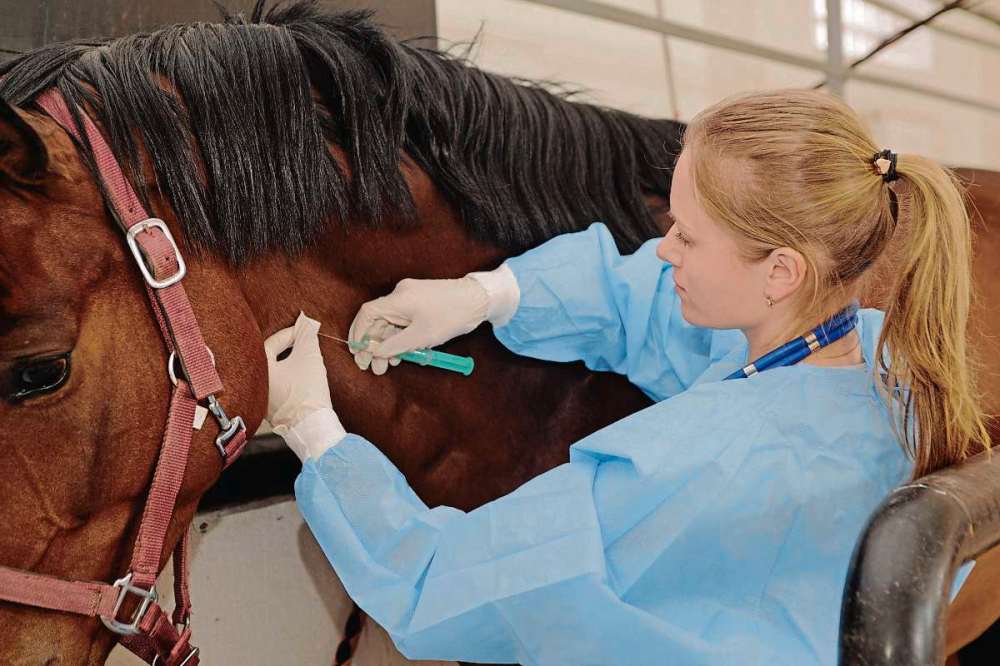Horses need yearly rabies vaccination
Advertisement
Hey there, time traveller!
This article was published 15/05/2016 (2909 days ago), so information in it may no longer be current.
Just the mention of rabies conjures images of an aggressive dog foaming at the mouth.
While that is one presentation of the disease, horses can also be infected with this deadly virus.
In horses, the virus is most commonly contracted through infected wild animals such as foxes, raccoons, rats and even bats.
Rabies is a type of virus that maintained in the wild animal population which results in some of the typical signs that we all know about, such as aggression, loss of inhibition, stupor, foaming at the mouth, chomping of the jaws and fear of water.

Although the rabies virus is highly deadly, it is a slow moving virus in the body. This means that when the virus first infects an animal, it takes a long time to reach the brain where it causes death.
During the incubation period, the virus infects the animal and specifically spreads into its saliva meaning it can be easily spread through bites. As the virus enters the brain and slowly alters the animal’s behaviour before death, it allows itself a means to live on by changing the animal’s behaviour so that bites will occur.
In a horse, once bitten, the virus can take anywhere from days to weeks to show its effects. Horses typically do not become aggressive but rather will become depressed and even slip into a coma before death.
Some of the earliest signs may be twitching at the lips and chomping of the mouth. Some horses will experience aversion to water and may not drink for several days before death. Most horses just become depressed and may foam saliva at the mouth before experiencing seizures and coma. Once a horse is infected and showing signs, there is no cure for rabies.
Rabies vaccination is the easiest way to protect your horse from developing infection and avoiding death. Vaccination should be performed once per year due to the high level of contact your horse has with wildlife.
Compared with dog and cat recommendations of once every three years, which are based on a lower level of direct wildlife contact and immune system studies of those animals.
Rabies is a community health issue as well. A human whom has contact with the saliva of an infected animal, horse or otherwise, is at risk for infection with the virus, which can be lethal.
If you suspect that your horse has been bitten by a wild animal or you notice a wild animal acting abnormally around your horses, you can contact your veterinarian for further advice.
Never approach an animal you suspect may have rabies.
Chris Bell is an equine veterinarian and surgical specialist who operates Elders Equine Veterinary Service, with clinics in Cartier and Winnipeg. See www.eldersequineclinic.com.
